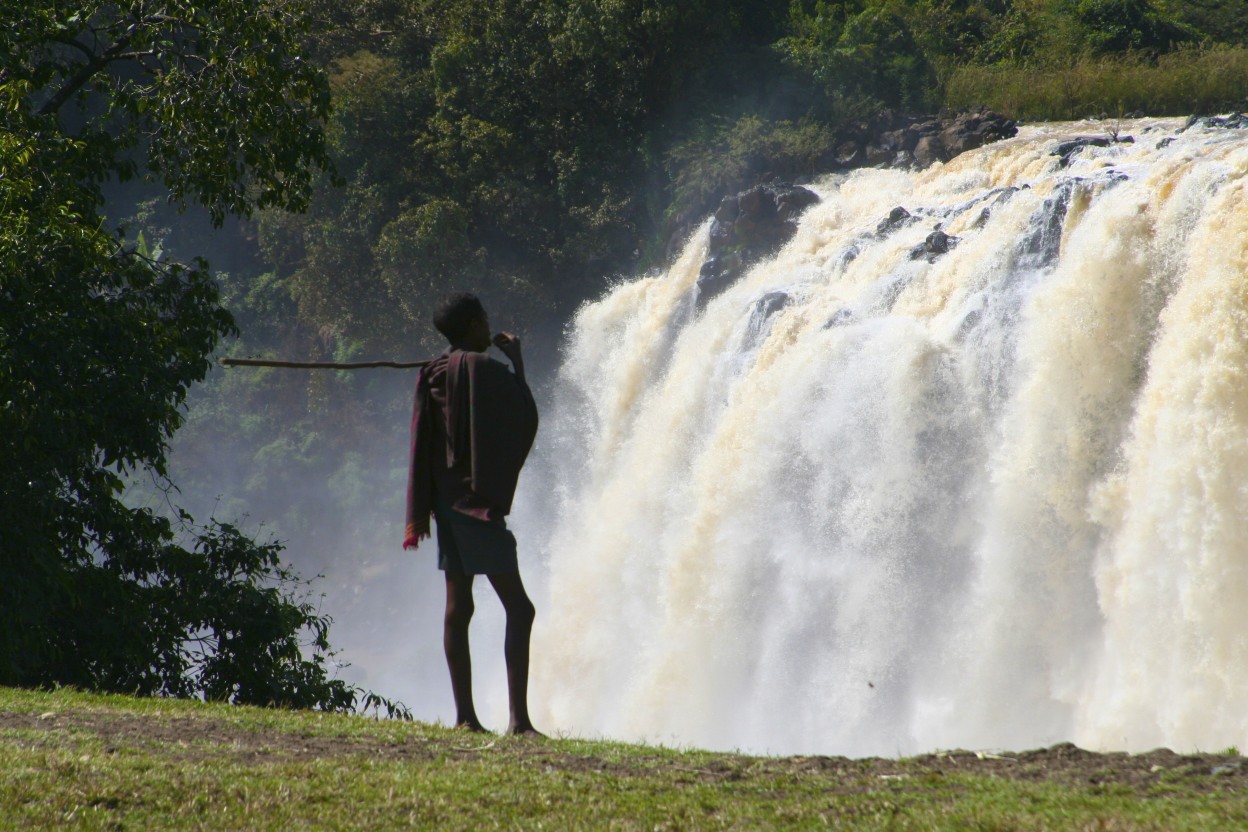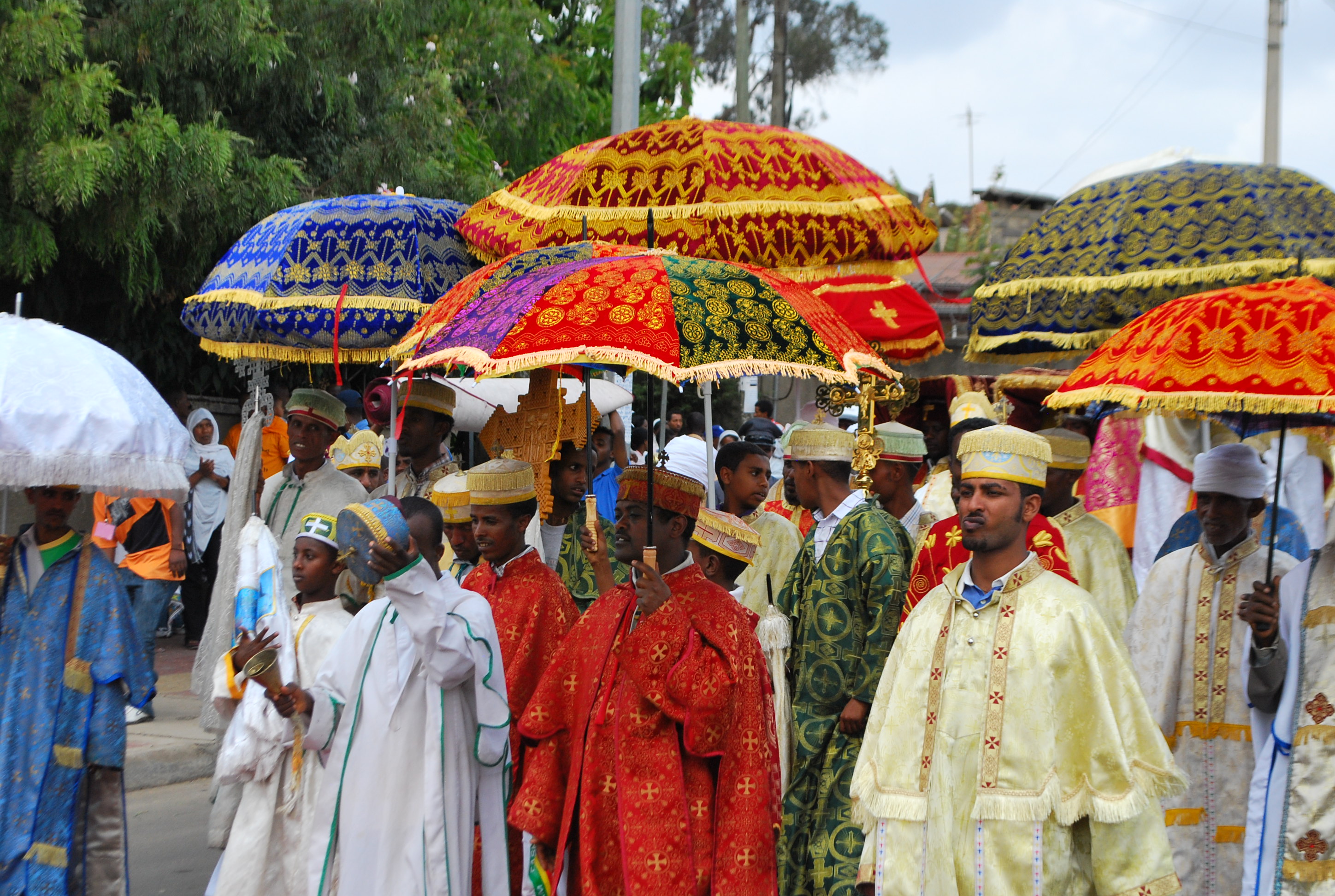1. Christmas in Addis Ababa
I know you’re thinking “but I want to celebrate Christmas with my family!” Well you’re in luck because you still can. Christmas (referred to as Ganna in Ethiopia) is celebrated on January 7th based on the old Julian calendar, not December 25th. On Christmas day in Addis, you will see the streets filled with people dressed in all white traditional garments heading to church. If you want to get the full experience of Christmas in Addis you can attend a church service, which starts as early as 4:00am. The church procession makes its way three times around the church amidst ululation and chiming church bells, dazzling umbrellas and colorful attire of the clergy. After the church ceremonies, people disperse to their homes to indulge in mouth-watering dishes in a feast that marks the end of a 40-day fasting period.
Christmas in Ethiopia also falls on Traditional Sports Day so you can check out horse and rider sports on Jan Meda in Addis. Following Christmas on January 19th, Ethiopians also celebrate the baptism of Jesus in a colorful and vibrant 3-day festival called Timket (also known as Epiphany). Festivities for Timket start the eve before, and every street of Addis becomes adorned with green yellow and red Ethiopian flags. Both are very spectacular holidays and worth adding to your itinerary.
2. Diaspora season
Because of all the reasons listed in this article and then some, what feels like every young Ethiopian person from the U.S. travels to Ethiopia during December/January. It’s such a popular event that it’s earned the moniker “Diaspora Season.” They come to visit family, party, fall in love with other Diasporas or locals and experience home away from home. Some of them even decide to stay and start businesses and families. If you travel to Ethiopia during this season, chances are you will meet many American-Ethiopians who have come back to visit. Interacting with the diaspora community, many of whom are first generation Americans, will give you a whole different look into the complexity of Ethiopian identity.
3. The weather
One of the biggest draws to visit Ethiopia during the winter is that it’s actually summer/dry season there. Bring out the shorts, sunscreen and bathing suits! The land is lush, flowers are in full bloom and everyone is in sunny spirits. It’s a great break from the harsh winter most Americans and Europeans endure during this time of year. If you make it to the outskirts of the country, you will also see amazing species of birds and fauna. Keep in mind that this is also peak travel season so fares and accommodations will be more costly. But if you start planning now, you can still find good deals!
4. Lake Tana
Located in the northwestern Ethiopian Highlands in Bahir Dahr, Lake Tana is the source of the Blue Nile River. The journey to the lake itself is a soothing boat ride where men playing masinkos serenade the riders. Usually, you will stop at several islands before getting to the main waterfall of the lake. At the islands, you can step inside 14th century monasteries, taste raw coffee beans straight from trees and meet local islanders. Without any exaggeration, everyone is extremely kind and relaxed on the islands of Bahir Dar. On the actual island of the Blue Nile waterfall, you will likely see women spinning cotton, kids walking home from school, cows grazing and women performing coffee ceremonies. The waterfall itself is breathtaking; make sure to get as close as you can and get your hair wet… then let it dry as you sip velvety buna with the locals.
5. Kulibi
Kulibi, also known as the St. Gabriel pilgrimage, is massive pilgrimage in which tens of thousands of Ethiopians from every part of the country walk 65 kilometers from Dire Diwa to St. Gabriel church located on the top of the Kulibi Mountain. The pilgrimage, which starts in the afternoon and ends the following morning, takes place in an area where Christians and Muslims have long-lived together peacefully. Hyenas are often spotted on the journey and cheer the walkers on. If you don’t want to partake in the actual pilgrimage, you can take a cab or bus from Dire Diwa to the church in the morning and experience the amazing festival that takes place in the morning. Dire Diwa is very close to the ancient walled city of Harar, which is popular for it’s coffee and mosques. If you go to Kulibi, you have to stop by Harar!


